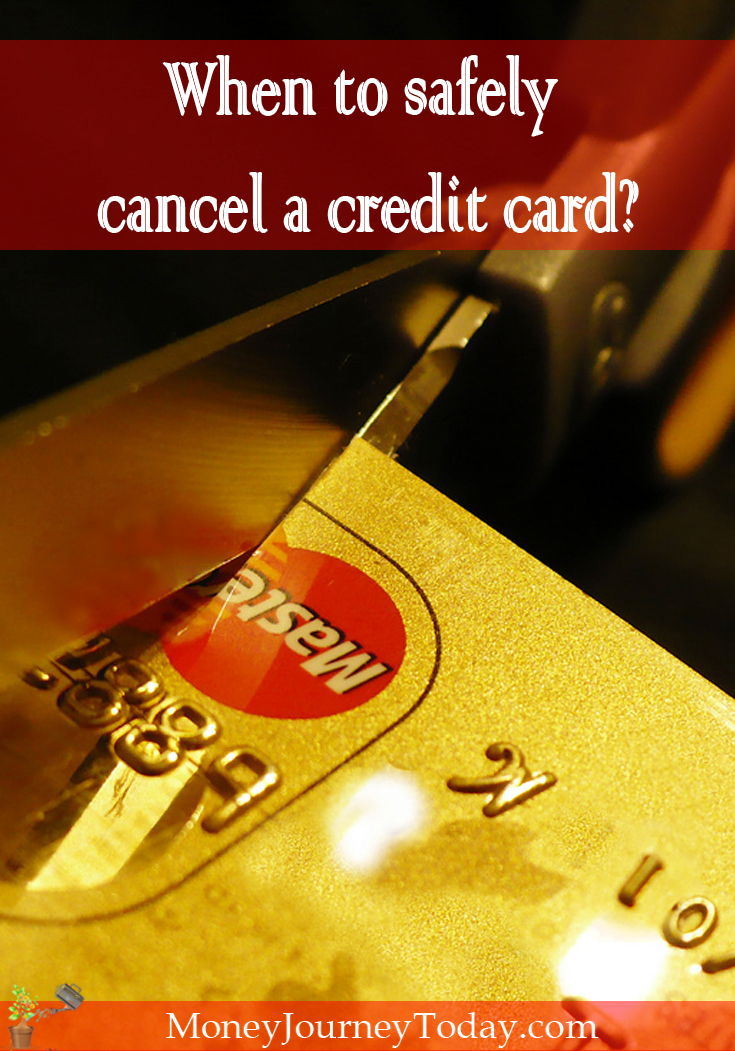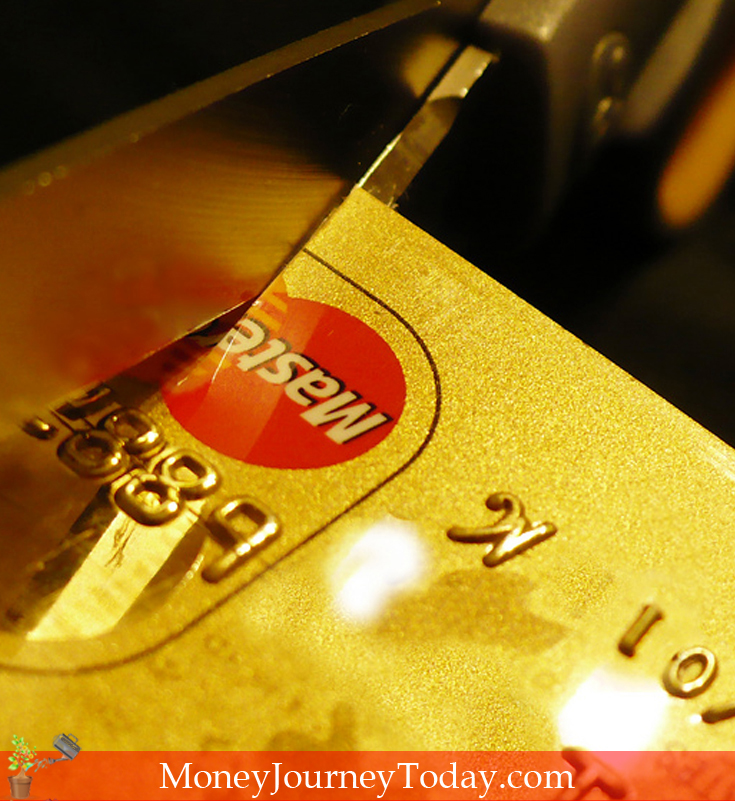Many argue about the dangers of using credit cards, others praise the benefits. But when you really want to ‘get rid’ of one, how do you know when to safely cancel a credit card?
Credit cards come with both advantages and disadvantages.
Using a credit card wisely can offer lots of benefits.
Although applying for credit cards just for the benefits is dangerous, in some cases the effort is totally worth it.
Other times though, credit cards equal debt. And credit card debt is not fun!
While there are plenty of ways to avoid credit card debt problems, many find themselves in this particular financial pickle on a regular basis.
With that being said, the answer to credit card debt problems is often cancellation.
While closing up a credit card means a significantly lower possibility for you to overspend, there are some situations where canceling a credit card might not be beneficial.
When to safely cancel a credit card?

Closing up a credit card account could be a risky move
When thinking about how to safely cancel a credit card, the way it could affect your credit score is the first thing that should come to mind.
Closing an account is one of the less obvious credit card mistakes that could have negative consequences.
It’s important to think twice before making any final decisions and evaluate the various scenarios that could play out in your situation.
Instead of getting rid of the danger of overspending, could you be lowering your credit score? That’s not something anyone wants!
It’s a well known fact that the higher your credit limit, the better the chances for you to improve your credit history.
FICO scores take your utilization ration into consideration when determining your score. This means keeping your credit card accounts open could actually help.
However, the utilization ratio actually takes your balance into consideration. This means, if you’ve paid off all your debt, you no longer carry a balance to influence your credit history in a negative way!
Another reason why many argue it’s wise to keep your credit card accounts around is the age of the account.
There are many people who have exceptional credit scores and one of the factors that helped is their prolonged credit history.
Knowing which credit cards to apply for and how to use them wisely has helped in many cases. Having a lengthy and positive credit history can do wonders for your credit score.
However, closing up a credit card account doesn’t mean its history will be forever deleted!
According to experts, accounts with both positive and negative impact will stay on your credit report for several years, even after you close them down.
This means you can safely choose to close a credit card account, because the history will continue to have an impact on your score.
The bottom line is, negative information regarding your payment history will stay on record for 7 years (unfortunately).
Positive aspects of your credit history will have an impact over the next decade though! Even if you cancel your credit card account.
There are many reasons why many choose to cancel credit cards
Most common reason is probably the fear of overspending.
Identity theft is a very valid reason to close up an account.
Another reason is the annual hefty fee some credit card companies take right out of your wallet.
Maybe you have a joint account but your partner keeps abusing it, or you broke up and don’t need it anymore.
There are plenty of reasons as to why someone needs to close up a credit card. So, how do you decide whether canceling is a good or a bad idea?
Whatever the reason, there are certain aspects to take into consideration before making a final decision.
1 – Only close a credit card after making sure you paid off your balance. On all credit cards!
Once you have a zero balance on all your credit accounts, you can safely start canceling your cards.
Be careful though! Closing up a credit card may result in a temporary credit score drop. Especially if you’ve just cancelled an old credit card account.
2 – Close after making sure you cancelled all automatic payments you set up with the account you’re about to close.
Otherwise, there’s a big chance you’ll end up being labeled as a late payer, in addition to probably having to pay penalty fees.
3 – Don’t cancel a credit card before redeeming your rewards!
You may be anxious to get rid of that credit card, but it would be a shame to leave free money on the table.
4 – Start by cancelling one credit card at a time to avoid ‘serious damage’. And avoid cancelling altogether if you plan on applying for a loan, mortgage or another credit card anytime soon!
Remember to always send a written notice to your issuer.
5 – Always check to make sure your card has really been cancelled.
You never know what could go wrong.
Make sure to check your free annual credit report for errors.
Have you ever cancelled a credit card? Did it affect your credit score?
